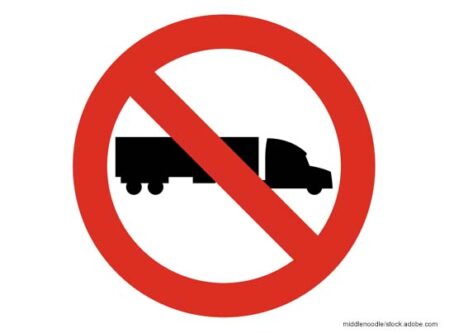Ticket camera rules addressed in 12 statehouses
Federal guidance authorizing states to tap billions for roadway safety programs has resulted in state lawmakers around the country adopting and pursuing legislation on the topic of automated cameras to ticket drivers.
In 2022, Transportation Secretary Pete Buttigieg announced plans to address a record increase in traffic deaths on the nation’s highways. Automated cameras were included among the tools identified to aid reducing fatalities.
The U.S. Department of Transportation’s national roadway safety strategy addresses the administration’s goal for the program.
“Automated speed enforcement, if deployed equitably and applied appropriately to roads with the greatest risk of harm due to speeding, can provide significant safety benefits and save lives.”
Ticket camera issue addressed in 12 statehouses
More than 500 communities around the country employ the use of red-light and/or speed cameras to nab drivers who disobey traffic rules, the Insurance Institute of Highway Safety reports.
Officials with the Owner-Operator Independent Drivers Association say the focus on the revenue-generating devices ignores the more logical and reasoned approach to roads and traffic: keep traffic moving in as safe a manner as possible.
Arizona
The Arizona Legislature is nearing approval of a bill to prohibit the use of ticket cameras – or photo enforcement – on state roadways.
IIHS reports that photo enforcement is available to 13 communities around the state.
Supporters of outlawing devices in the state say cities are not following the laws regulating photo enforcement.
To combat the problem, SB1234 would outlaw use of red-light and speed cameras to enforce traffic rules.
Sen. Wendy Rogers, R-Flagstaff, highlighted her concern about city governments using the devices as money makers for her pursuit of statute to forbid photo enforcement. The rule would apply to local authorities and state agencies.
The bill awaits a House floor vote. If approved, it would move to the governor’s desk. The Senate already approved it.
Arkansas
A new Arkansas law authorizes the use of traffic cameras to enforce speed limits in certain areas.
Gov. Sarah Huckabee Sanders has signed into law a bill permitting the use of speed cameras in work zones. Workers must be present in the area for cameras to be used for enforcement.
Law enforcement is required to be stationed at the end of highway or interstate work zones. An officer would have authority to issue a warning or a citation.
A signage requirement alerting travelers to the presence of speed cameras is included.
Previously SB481, the new law takes effect in August.
California
One California bill moving through the assembly would expand the state’s authority to use automated ticket camera enforcement.
The Golden State already authorizes the use of red-light cameras. The ticketing tool is used in more than 30 areas around the state. Speed cameras, however, are prohibited in the state.
The Assembly Privacy and Consumer Protection Committee is the latest panel to advance a bill would set up a five-year pilot program to utilize speed enforcement cameras in areas identified to have high crash rates.
As introduced, AB645 would apply to locales that include Los Angeles, Oakland, San Jose, and San Francisco.
Warnings would be issued to violators for the first 60 days. After that, fines for exceeding the posted speed by at least 11 mph would range from $50 to $500.
Ticket revenue would be used to administer the program and pay for “traffic calming measures.”
Supporters say the use of the enforcement tool makes travel safer. They add that it reduces police interactions with drivers while maintaining driver accountability.
AB645 has moved to the Assembly floor.
Colorado
The Colorado House voted Tuesday, May 2, to send to the governor a bill that would allow for more speed ticket cameras.
State law restricts the use of speed cameras to areas that include construction zones. An officer is required to be present when a speed camera is in use.
Notice of a violation must be issued and sent to the vehicle owner within 90 days of the violation.
SB200 would allow municipalities to designate corridors where speed cameras may be installed. Signage requirements are included.
The bill would also do away with the requirement that an officer be on site.
First-time offenders would receive a warning as long as they are driving less than 10 mph above the posted speed limit. Fines would be capped at $40.
Notification of violation would be required to be sent to a Colorado-registered vehicle owner within 30 days. Notification to out-of-state vehicle owners must be sent within 60 days of the violation.
Additionally, local governments could prohibit the in-state vehicle owner from registering their vehicle or transferring the title until fines are paid.
SB200 now heads to the governor’s desk. Senate lawmakers already approved it.
Connecticut
In Connecticut, a bill on the House floor would greenlight more access to automated ticket camera enforcement.
State law authorizes the use of speed cameras in work zones. Statute does not cover red-light cameras.
HB5917 is a comprehensive effort to address road safety. It contains a provision to permit municipalities around the state to utilize red-light cameras and speed cameras in areas that include “pedestrian safety zones” and at sites within a municipality “that had a history of traffic crashes caused by excessive speed or by violations of a traffic sign or traffic signal.”
Municipalities would be required to adopt an ordinance authorizing cameras.
First-time violators would be fined up to $50. Violations would be limited to exceeding the posted speed by at least 10 mph or running a red light.
Indiana
Indiana Gov. Eric Holcomb acted Monday, May 1, to sign a bill into law authorizing the Indiana State Police to set up ticket cameras in highway work zones to enforce speed limits.
State law authorizes fines between $300 and $1,000 for speeding in work zones. Statute has not allowed nor prohibited the use of speed cameras.
Previously HB1015, the new law allows drivers to be punished for exceeding the posted speed in work zones by at least 11 mph. Devices would be in use when workers are present.
Offending vehicle owners would receive a warning for a first offense. Repeat offenders would face $75 fines. Subsequent offenses would result in $150 fines.
A fiscal impact statement attached to the bill shows an average of 1,675 guilty verdicts in Indiana were entered for speeding in a work zone annually over the past seven years.
The new law takes effect July 1.
Iowa
Multiple Iowa bills cover the use of ticket cameras.
State law does not prohibit nor allow the use of speed and red-light cameras. However, the state’s Legislative Services Agency reports there are 19 cities and towns that operate automated or remote systems for traffic law enforcement.
One Senate bill, SF489, would permit local authorities to use fixed speed cameras to ticket offenders. Localities would be required to remit to the state road use fund 10% of collected money outside of installation and maintenance costs.
Mobile cameras to detect speeding violations could only issue warnings.
Authority would also be given to place red-light cameras at intersections and at railroad crossings.
The number of ticketing devices in each city would be based on their size.
Local governments would be required to obtain permission from the Iowa Department of Transportation to use the ticketing devices.
The House version is HF629.
Another bill, HF628, would forbid municipalities from posting traffic enforcement cameras along primary and secondary roads including interstates. The rule would not apply to the state.
Municipalities could use cameras to enforce traffic rules on municipal streets.
Fine amounts would be limited to 5% of the applicable scheduled fine or civil penalty for the violation under state law.
Michigan
Two Michigan bills on the House floor would authorize automated speed enforcement in work zones.
Currently, no communities in the state employ the use of red-light cameras and speed cameras.
The bills would permit speed cameras to enforce vehicle speeds in work zones on a highway or street.
HB4132 and HB4133 would give the Michigan State Police and the Michigan Department of Transportation permission to utilize automated enforcement.
Devices would be authorized for use when construction workers are present. Owners of vehicles found traveling at least 10 mph above the posted speed limit would receive violation notices in the mail.
First-time offenders would receive a written warning in the mail. Repeat offenders with violations within three years would face fines up to $150. Subsequent offenses would result in fines up to $300.
A sign must be placed prior to where the work zone begins to notify drivers about the automated enforcement.
Additionally, a work zone safety fund would be created with the state DOT coordinating with state police and local law enforcement to increase police presence within work zones, to fund devices, and to make other safety enhancements.
New Jersey
A bill halfway through the New Jersey statehouse is intended to limit the effect of red-light and speed cameras.
The Garden State does not employ the use of ticket cameras. Other states in the Northeast, however, do utilize automated enforcement methods.
The New Jersey Senate voted unanimously during the past year to advance a bill to prohibit the state’s Motor Vehicle Commission from providing identifying information for New Jersey licensed drivers to camera enforcement entities in other states.
Titled the “Camera Enforcement Inoculation Act,” the legislation is modeled after a South Dakota law that prohibits the state from sharing information with other states for the collection of civil fines that result from camera tickets.
S460 is in the Assembly Law and Public Safety Committee.
Oregon
There are 10 cities in Oregon, including Portland, where photo radar is permitted on segments of roads. Tickets are issued for violators exceeding the posted speed by more than 10 mph.
Speed radar in affected locales is limited to use for up to four hours per day.
Senate lawmakers voted last week to authorize all cities to use photo radar. Additionally, HB2095 would eliminate the restriction on number of hours per day that photo radar may be used in any one location.
Cities would also have authority to change and determine speed on different segments of the roads up to 10 mph below the statutory speed, providing the designated speed is not less than 20 mph.
The bill now moves to the governor’s desk. House lawmakers already approved it.
Virginia
A new Virginia law authorizes red-light ticket cameras in the city of Hampton.
Previously SB861, the new law permits a “traffic control device violation monitoring system” at any intersection deemed to be “negatively impacted by traffic” due to the Hampton Roads Bridge-Tunnel expansion project.
The project is widening the current four-lane segments along nearly 10 miles of the I-64 corridor in Norfolk and Hampton, with new twin tunnels across the harbor.
The monitoring system authorization would conclude when the project is complete.
Washington
Washington Gov. Jay Inslee has signed into law a bill to expand the use of the speed ticket cameras.
Currently, speed cameras are permitted by state law and by city ordinance. Locations are limited to school, public park and hospital zones. Other locations of concern can also be outfitted with ticket cameras.
Previously SB5272, the new law authorizes the ticketing mechanism in highway work zones. Citations could only be issued when workers are present.
Additionally, signs must be posted to alert travelers to the presence of cameras. Notices of violation must be sent within 30 days.
Data from the Washington State Department of Transportation show there were 283 minor injury crashes, 28 serious injury crashes and five fatal crashes in work zones in 2021.
“Speeding and distracted driving are the main causes of these tragic events,” Sen. Curtis King, R-Yakima, said in prepared remarks. “Placing speed cameras in our work zones can be an effective way to deter drivers from causing a serious accident.”
The Washington State DOT requested the new rule that takes effect in July 2024. LL









